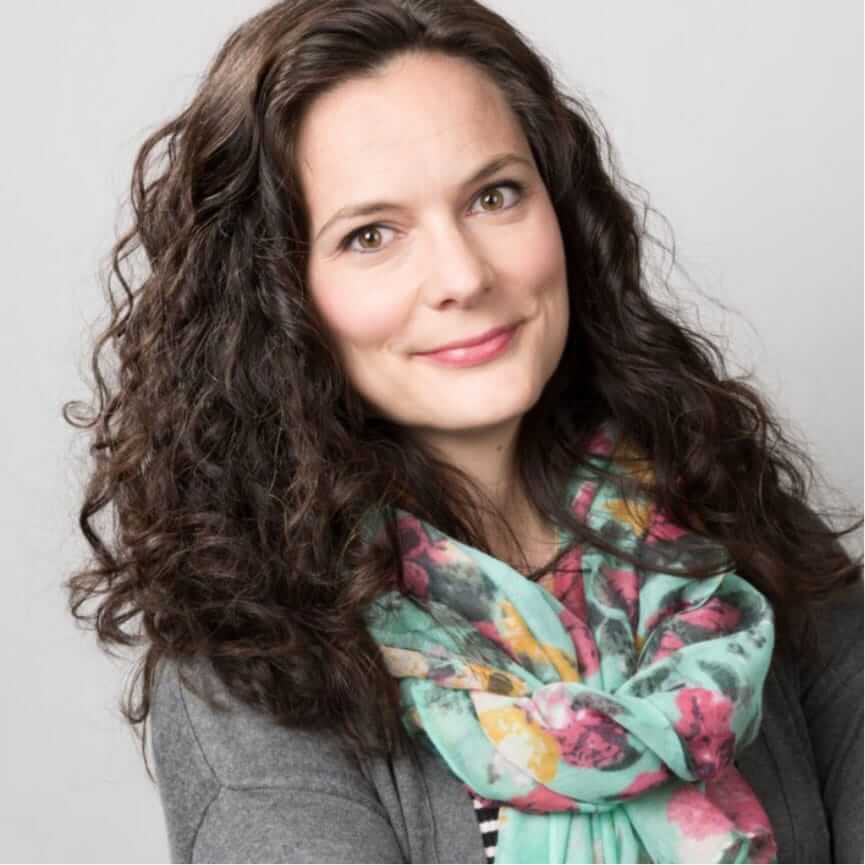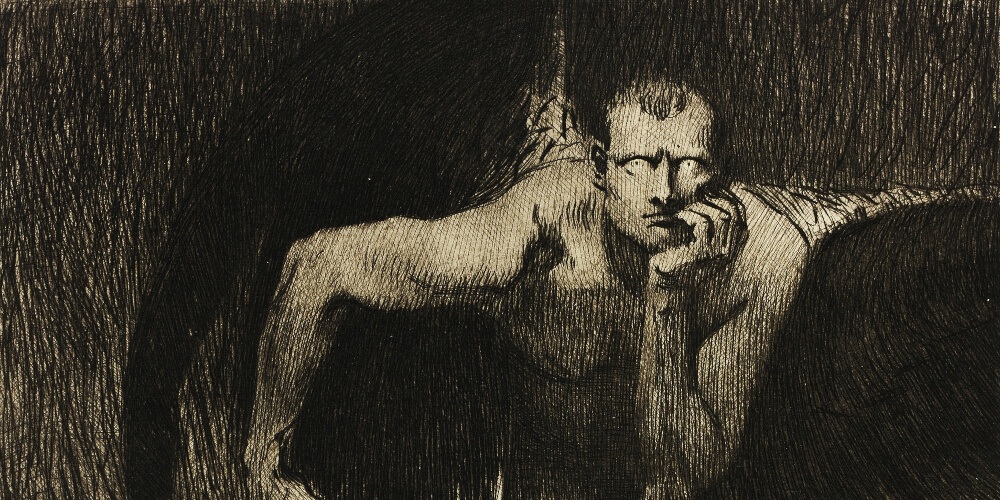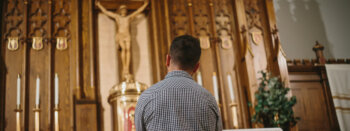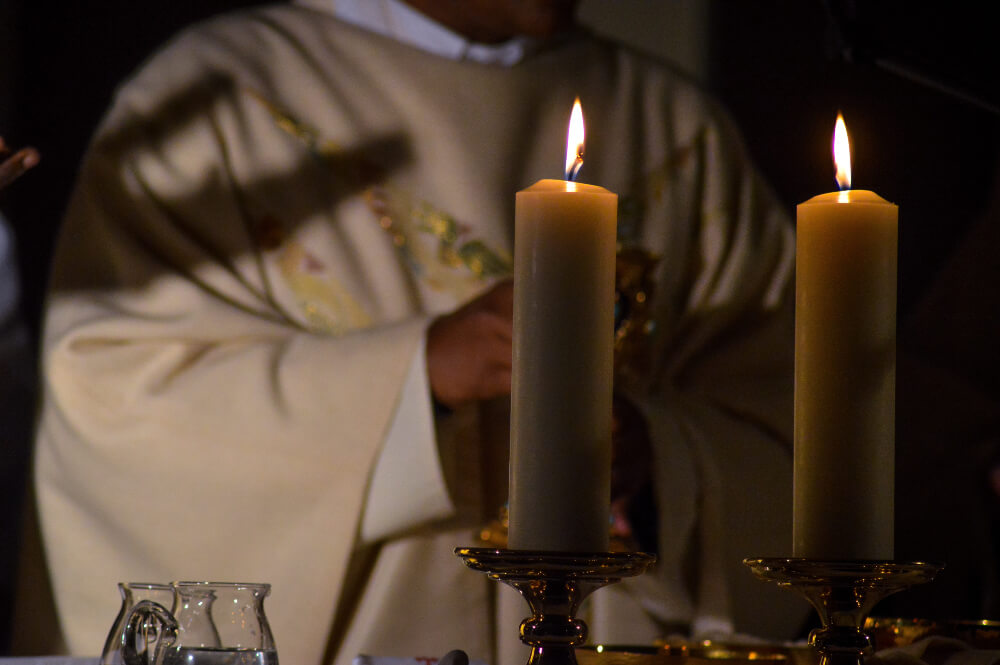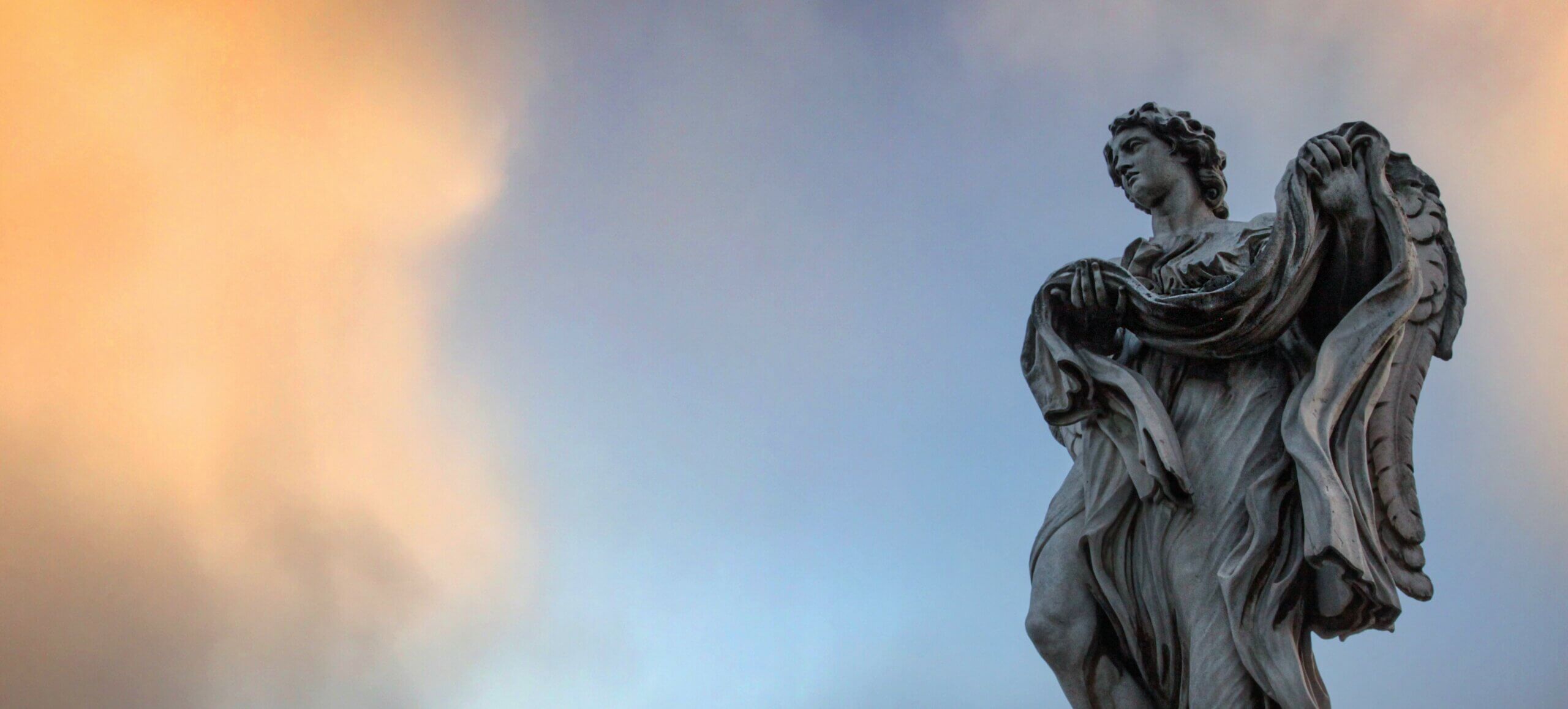
There is a persistent error among many Catholics when it comes to their Guardian Angels: trying to discover their name or identity, or assigning a name to them.
It’s easy to understand why this mistake is common. After all, when human beings form a relationship, learning each other’s name is the first step.
Is it wrong to name our angels or to ask them to reveal their names? Here is the answer.
The Role of Your Guardian Angel
One of the beautiful and consoling teachings of the Catholic Church is that God has given each one of us a guardian angel to lead us on the path to salvation.

Beside each believer stands an Angel as protector and shepherd, leading him to life.
St. Basil the Great
Angels are pure spirits. They do not have physical bodies. They have an intellect and will, and operate in specific ways to guide, protect, and even to influence us for good in accordance with our free will. They respect us and never force us to do anything.
4 Reasons Why You Shouldn’t Name Your Angel
It is an excellent and commendable practice to invoke our angels and learn how to recognize their promptings.
However, there is a distinction that must be acknowledged if we are to behave appropriately in respect to our guardian angels.
Among other human beings, we are equals; but that is not the case with us and the mighty Heavenly Host.
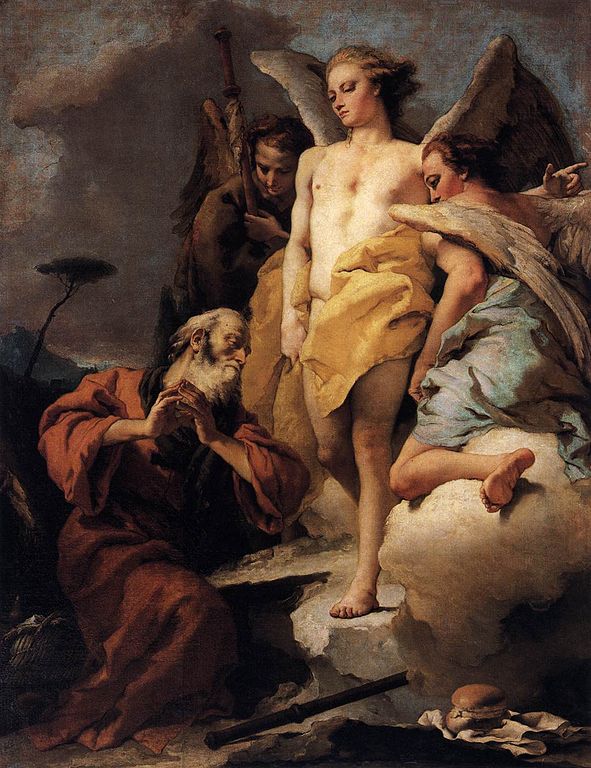
In fact, trying to find out the name of, or give a name to, our Guardian Angel is a bad idea for four big reasons.
1. Angels in the Bible declined to give their names when asked.
God created a multitude of angels—more than we can count—yet He has given mankind the names of only three angels in Sacred Scripture: St. Gabriel, St. Michael, and St. Raphael.
Since this is all that God has chosen to reveal to us about the identity of specific angels, we have no reason to insist on knowing the names of guardian angels.
In fact, Sacred Scripture offers accounts of human beings trying to learn the names of angels to no avail. Yes, we have the names of three archangels, but God chose to reveal the names of Gabriel, Michael, and Raphael—they were not asked for by human beings.
In the Book of Genesis, the patriarch Jacob was unsuccessful in obtaining the name of the mysterious being who wrestled with him in the desert. Jacob asked him, “Please tell me your name.”
The angel answered, “Why do you ask for my name?” (Genesis 32:24-29).
Jacob received no answer but a gentle rebuke in the form of a question.
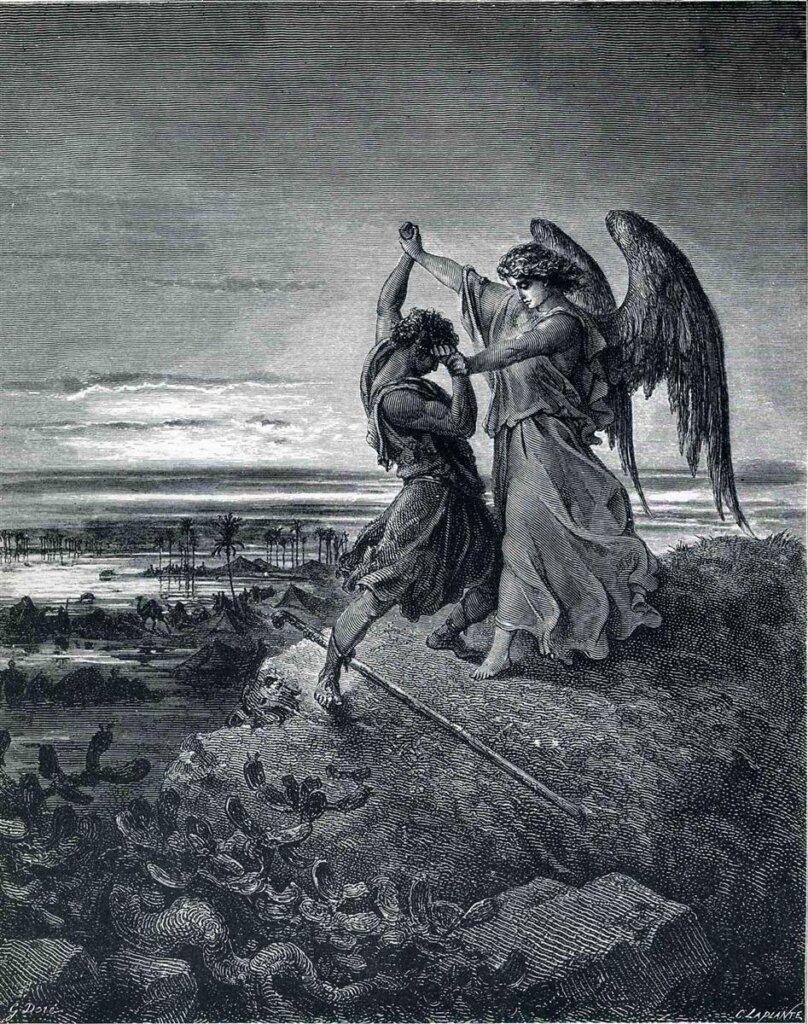
When an angel appeared to Samson’s mother as recorded in the Book of Judges, she told her husband, “A man of God came to me; he had the appearance of an angel of God, fearsome indeed. I did not ask him where he came from, nor did he tell me his name. But he said to me, ‘You will conceive and bear a son…’”
When the angel returned, Samson’s father asked him, “What is your name, that we may honor you when your words come true?”
But the angel would not tell him:
And the angel of the Lord said to him, “Why do you ask my name, seeing it is wonderful?”
Judges 13:18
These angelic rebukes tell us to respect the hiddenness of the names these spirits have received from God.
In heaven, we will likely know their names—something to look forward to!
2. To name something is to claim authority over it—and we have no authority over angels.
The act of naming carries great significance. To name something is to claim authority over it.
In the Garden of Eden, God gave Adam dominion over the animals. As an exercise of Adam’s authority, God brought the animals to Adam so that he could give them a suitable name.
However, God only brought Adam the creatures that were of a lower nature than humans (or of the same nature, as in the case of Eve). God did not bring Adam creatures that were of a higher nature than humans, that is, the bodiless spirits.
Therefore, it is not within our authority to give names to, or find out the names of, creatures that are of a higher created order than us.
To know an angel’s name is to discover much more about their identity than is the case with human beings.
Because angels are simple spirits, to know their name is to know their essence, the very core of their being and the purpose of their creation. This knowledge is for God alone, and those in heaven with whom He shares this knowledge.
3. Fallen angels can interfere in our attempt to learn the names of guardian angels.
When we attempt to discover the name of our guardian angel, we immediately start looking for signals that our angel is trying to answer us with a specific name.
Or we say, “The name ‘Fred’ popped into my head, so I knew it was my angel’s name!”
Both of these examples are unwise.
We can mistake many things for “signals” that are nothing of the sort, and in the end, we are only deluding ourselves.
In the same way, just because a name pops into our head doesn’t mean it belongs to our angel. Our brains are active and full of imagination and stream of consciousness. There is no guarantee that an idea is inspired by your guardian angel.
Furthermore, as Fr. Matthew Kauth reminds us in the video below, demons are fully capable of interfering in such attempts. They are present, just as your angel is.
You may indeed receive a name—and it may be a misleading one. And that is why the Church advises against the desire to know one’s angel’s name, as we see in the next point…
4. The Church told us not to.
There is one final reason why we should not name our angels: the Church warns against this practice.
According to the Directory on Popular Piety and the Liturgy from the Holy See’s Congregation for Divine Worship and the Discipline of the Sacraments:
“The practice of assigning names to the Holy Angels should be discouraged, except in the cases of Gabriel, Raphael and Michael whose names are contained in Holy Scripture.”
Directory on Popular Piety and the Liturgy from the Holy See, 2001
The Church discourages this practice for our own protection.
We have to remember that, just as we are always in the company of angels, so too we are in the company of demons.
If a demon sees that we are trying to discover the name of our guardian angel, and knows the kinds of things we will mistake as signs (they are brilliant deceivers), they can masquerade as angels of light and send us false signals. If they observe that we are following their deception, they can lead us far astray. This is the reason why the saints divulged the supernatural occurrences in their lives to a confessor or spiritual director, to serve as a protection against demonic deception.
As with all ill-advised attempts to inappropriately communicate with the spirit world, doing so can open us up to demonic influence.
We Can Stay Close to Our Angels Without Knowing Their Names
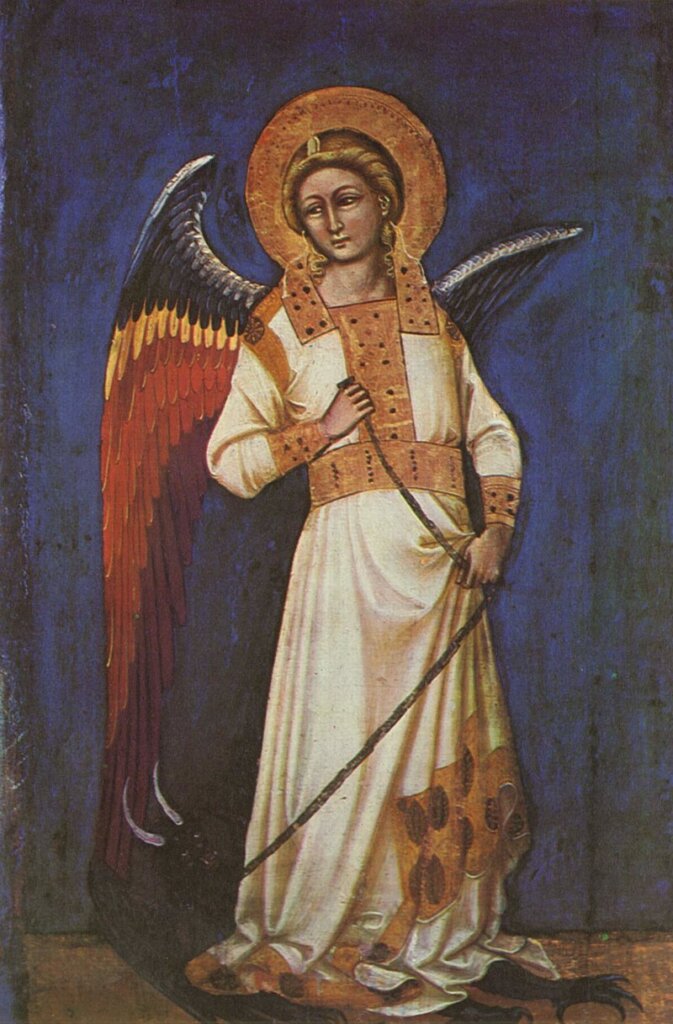
In summary, because mankind has been made lower than the angels, it is not for us to assume a higher place by attempting to name or find out the name of the angels who are assigned to serve and guide us.
For this and all the reasons mentioned above, it is clear that it is not our rightful place to know more about our angels than God has revealed to us. But that doesn’t mean that we shouldn’t become acquainted with them. Seek the guidance of your guardian angel daily through prayer, learn how to love him and follow his lead, but don’t insist on naming him!
Your angel does have a name, but it is mysterious and holy.
There is a reason why God chooses not to let individuals know their angel’s name. It might seem odd to us, but we don’t need to worry—all we need to know is that we have the amazing gift of a guardian angel who is always there for us.
“So What Do I Call Him?”
When you address your angel, all you have to say is, “My guardian angel,” or “My angel,” and he knows exactly who you’re speaking to.
He doesn’t need you to know his name in order to do his job—indeed, our angels are more attentive to us than we can ever be to them!
Our Guardian Angels are our most faithful friends, because they are with us day and night, always and everywhere. We ought often to invoke them.
St. John Vianney
Someday, in heaven, you will know your angel’s most holy name. It’s just one more thing to look forward to!
If you are interested in learning more about correct teaching on the angels, you will love the series Angels and the Supernatural. Sign up today and discover what the Church teaches about angels and the invisible world.
